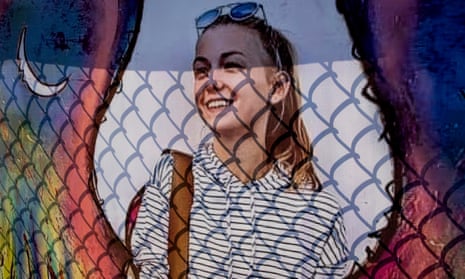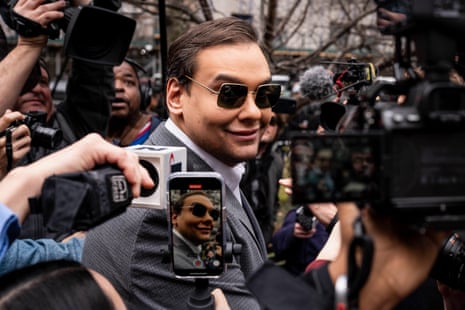Jenny Gow says returning to Formula 1 at the Dutch Grand Prix 'destroyed her for 10 days' Photo: Heathcliff O' ;Mally for The Telegraph
The day, December 29 last year, began in typical post-Christmas fashion. Lazy start. Donuts for breakfast. It wasn’t that Jenny Go was hungry. Coming down with the flu and a terrible cough over the holidays, she slept on the sofa downstairs so as not to disturb her husband Jamie Coley and their six-year-old daughter Isabelle.
What happened? the next one changed their lives forever.
Gough, a voice familiar to BBC Radio 5 Live listeners as the station's Formula One pit lane reporter and to Netflix viewers as the talking head on the hit series Drive to Survive, went to the toilet at about 9.30am. After this, her memories become patchy. “I remember some things,” she says. “Very specific things. It's like looking through a shutter. Surreal.”
Jamie, a Sky Sports producer, will never forget it. “I heard a loud knock,” he says. “I was conscious of the fact that I hadn't actually seen or heard from Jen for 10 minutes. And then I heard a loud noise and I went to check. We have a loose open-door policy in this house regarding restrooms…” “Yeah, well, we have a six-year-old,” Jenny chimes in.
Jamie found his wife collapsed on the floor. “I kind of ran in,” he says. “Her pants were down to her knees, so I assumed she tried to get up from the toilet and just fell. I looked for blood, looked for lumps. I was like, “Jen, Jen, talk to me!” No answer. Her eyes seemed to look into the distance, beyond me. I called 999.”
What actually happened was that Gou suffered a stroke. They later learned that the carotid artery on the left side of her neck had torn due to coughing, an “extremely rare” occurrence. The blood clot moved up the damaged vessel and caused a stroke in the left hemisphere of the brain.
Nine months later, sitting in the garden of her Sandhurst home, Gow is almost her old self again. She speaks and moves a little slower than before, and stumbles over a few words within a couple of hours. But she has made incredible progress considering she had to relearn how to speak, read and write.
“Getting back to the paddock left me exhausted for 10 days.”
In July, just six months after suffering a stroke, Gow returned for the first time into the Formula One paddock at Silverstone, conducting a special one-on-one interview with Lewis Hamilton for BBC Radio 5 Live, which she admitted was a “dream” at the start of her recovery. Three weeks ago she returned for a full race weekend in Zandvoort.
 Gow took her first steps in the paddock at the 2023 British Grand Prix. Photo: Jenny Gow on Twitter
Gow took her first steps in the paddock at the 2023 British Grand Prix. Photo: Jenny Gow on Twitter
The experience was both positive because she “loved coming back and loved seeing everyone again” and negative because it “destroyed her for the next 10 days.” Gough admits she's not sure when or if she'll be able to return to full-time work. She was only able to really spend a weekend in Holland because Jamie accompanied her, and because her employers were understanding, allowing her to rest and miss classes as needed.
“One day I had to take a nap in the office [ [McLaren PR director] Steve Atkins at McLaren just because I couldn't make it to my [commentary] booth,” she says. “Bless her, the lady at the front desk at McLaren thought we were joking when we said we were there for a nap.”
“Jen’s mom didn’t like it.”
Still, when they think back to December 29 last year, they realize how far she has come. Both Gow and Cowley cried as they described the terrifying hours and days that followed her collapse. Jamie remembers Isabelle peeking around the closet door and seeing her mom in distress. “I tried to give her something to distract her,” he says. “I was like, 'Go get me some pillows for mommy's head.' Or, “Go and see if you can open the door because the ambulance will be here soon.”
A trip to Frimley Hospital, where Cowley told the doctor: “How serious are we talking?” To which the doctor replied: “Very. This could be fatal.” Calling on Jenny's parents to warn them about what happened and try their best to convince Jenny's mom of the seriousness of the situation. “It didn’t sink,” he says. “Jen's mom said, 'What do you mean?' And I blurted out, “She could die.” That’s when Iz kind of realized what was going on.” Gow was transferred to a specialist unit at St George's Hospital in Tooting where she underwent a so-called thrombectomy to remove the clot.
“Imagine the end of a vacuum cleaner, but much smaller,” explains Jamie. “And you have a little claw inside of it. It's inserted into the femoral artery in the groin, pushed all the way up, and then they pull the sheath back, and this claw comes out, grabs the clot, and then they pull it back and down again. In fact, that’s how it is.”
 Gough with her husband Jamie Coley, who works for Sky Sports' Formula One Report By Heathcliff O'Malley for the Telegraph
Gough with her husband Jamie Coley, who works for Sky Sports' Formula One Report By Heathcliff O'Malley for the Telegraph
In short, it's a terrifying ordeal. Still, Gou and Kolya feel incredibly lucky.
As they later discovered, the stars aligned on so many fronts, without which the outcome could have been very different. First, Jamie heard the fall. “I could easily take Iz for the whole day, leaving Jenny to rest. We could be back in eight hours, and then it would be too late.”
Besides, they live close to the hospital. Despite ambulance and nurse strikes last winter, ambulances arrived within minutes.
Even better, there is a specialist stroke unit nearby in south London, an option not available to millions. “A lot of things could have gone differently,” admits Gow. “Stroke recovery is a postcode lottery. There are very few places where thrombectomy can be performed. There is time for this. If I had had my stroke on Sunday instead of Thursday, I might have been in a completely different situation. Many stroke units are closed in the evenings and on weekends.
“Everything really, from the speed of the ambulance arriving to the fact that it happens on a Thursday morning, to how we got to St. George. … all this meant that the level of damage to my brain was relatively low.” But it's not all about pure luck.
Gou wants to use her platform to raise awareness. Stroking may not be “sexy,” she says. But they are incredibly common. According to the Stroke Association, around 100,000 people have a stroke each year in the UK, which is one every five minutes. And they are not all elderly. About a quarter of the victims are under 65 years of age.
“You just think about something as serious as a stroke, which can be life-changing… we need to be better at raising awareness, raising funds so more people have better outcomes. Every minute matters [to the brain]. It's like leaving the freezer door open. It's defrosting.”
“I read 100 pages of the book… in January I couldn't read at all”
Fortunately for Gou, her age, the elasticity of her brain and many months of speech and language therapy mean that her neural pathways have largely learned to bypass the “dead piece” that now lies in her brain. “I read 100 pages of my book while I was out,” she says proudly. “In January I couldn’t read at all.”
This is a continuous process. Gow now suffers from acquired dyslexia, aphasia and dysarthria, which make it difficult for you to speak because the muscles you use to speak are weak. The nerves in her right hand don't respond properly to heat, meaning she could easily get burned. She can't whistle anymore. She has to take pills every day. “Six,” says Jamie, who is known as the “pill police.” “Statins for cholesterol. Thins the blood for life.” Perhaps most alarming of all, at the three-month carotid artery scan, the radiologist noticed that Gou's vertebral arteries had also dissipated at some point.
A little #F1 news from me… pic.twitter.com/8MiMR6HQaa
— Jenny Gow (@JennieGow) August 18, 2023
But they also manage to find lightness among the darkness. A certain gallows humor. Gow remembers showering at St George's during the week she was there, accompanied by a nurse in full PPE.
“I was so beside myself about it that I ended up spraying her with the shower , without even realizing it,” she says, laughing hysterically. “She was completely wet. And I couldn't even speak to apologize! I had soap everywhere. I tried to wash my hair. It was the most awkward thing.”
Their main priority was to make things as normal as possible for Isabelle, who was understandably confused and frightened by the experience in equal measure. In the first few days Isabelle was with Jamie's parents in Bournemouth, he came up with a witty way of explaining what had happened to his mum. “I used the analogy of her Mario Kart game,” he says. “You know, you can’t just go to the race as soon as you turn it on. You need to choose your kart, choose a track. There are many stages to go through before you can race, maybe 10 stages.
“I told her that mom had rebooted and she was probably in stage one. So hopefully we'll get 10 as soon as possible. I wasn't sure she fully took it into account until three months later when she said, “I think mom is stage seven.” I hope she'll be there soon at nine.” It just blew my mind.”
“Does the BBC want me back? This is a cause for concern.”
However, it clearly affected her and it is still becoming apparent. “I realized a couple of months ago that she basically thought my fall off the toilet caused the stroke,” Jenny says. “She was a little worried that if she fell off the toilet she might have a stroke. And I tried to explain: no, don't worry. It had nothing to do with sitting on the toilet.”
 Gow returned to BBC duties at the Dutch Grand Prix. Photo: Getty Images/Vince Mignott
Gow returned to BBC duties at the Dutch Grand Prix. Photo: Getty Images/Vince Mignott
The biggest challenge at the moment is overcoming the fatigue that makes her need daily rest. Until she can deal with this, she said, she will be in a bit of a “suspended mode” regarding work. “I would like to come back at the start of next season, but I don’t know if that’s realistic. It's a question mark. I think we thought that after Zandvoort we would know for sure whether I could do it or not. But really, until the fatigue goes away… I can't spend a race weekend alone. Any other questions then? Would the BBC want me back? I'm a freelancer. I don't have a contract with anyone.
“I mean, they said they wanted to work with me and figure out how to do something. But they don't have to.
“[Talent management company] IMG is doing really well. We talk about what we can potentially do. The BBC doesn't actually have a say.
“The irony is that every year I always think, ‘Will I get a job next year?’ You always hope that I will.” They will hire me again, but sometimes in March, and you are still sitting there. And this was the first year when we had already made plans for which races I would participate in, and I had a certain security!”
Does this bother her? “Yes, when you see the paddock moving, it’s frustrating. The sport is coming to Vegas for the first time this year and I would love to be there. Or if Max [Verstappen] wins [his third world title] in Qatar, not being there will suck. It's hard to listen to someone else do [your job], even though all my colleagues were great, went out of their way to be kind, and emphasized that they warmed my seat.”
Ultimately, despite everything she's been through, Gou wants to reiterate how lucky she is. Enlisting the support of Formula 1 and the rest of the motorsport community, from the Isle of Man TT to Extreme E, who even paid her during her sacking. “Many stroke patients are not as lucky as I was,” she reflects. “They don’t live near a stroke unit. They don't have the family support network that I do or the employers that understand. The free time Jamie has given [Sky Sports] has been incredible… we can't thank them enough. It makes you appreciate what you have. I get lucky. And the fact that other people have to struggle much more. That's another reason why I felt we needed to speak out.”
This weekend, as Verstappen closes in on his world title in Singapore, Gow will take part in his own 'race'; A 3km walk with Isabelle for the charity Different Strokes. “This is not a marathon,” she says. 'But this is just the beginning.'
Jenny Gow is raising money for the charity Different Strokes with a 3km walk this weekend. If you would like to donate, please take part in Jenny's fundraiser for Diff'rent Strokes





























































Recent Comments